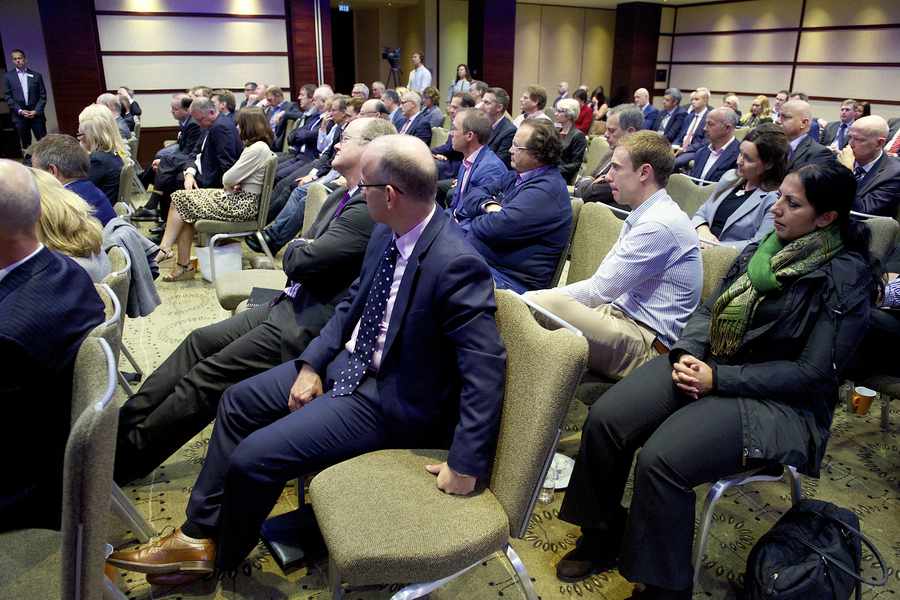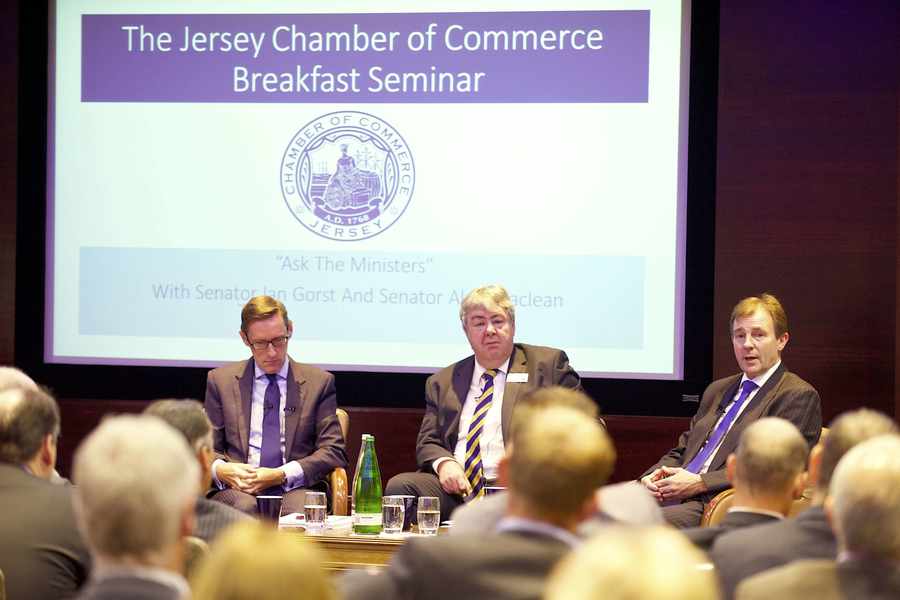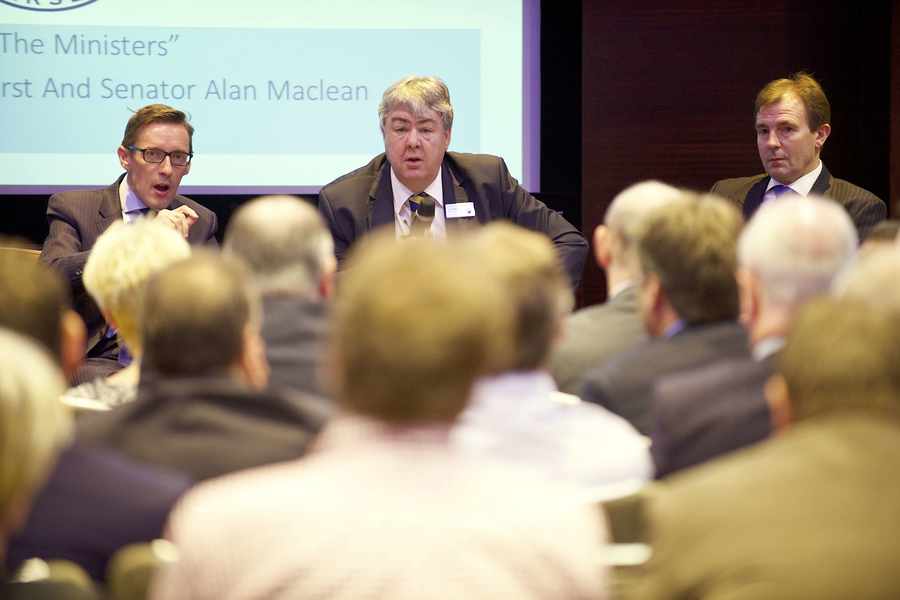Chief Minister Ian Gorst and Treasury Minister Alan Maclean were also put on the spot about the cost of States primary schools, e-gaming regulation and funding for charities at the Jersey Chamber of Commerce members’ event.
The Ask the Ministers breakfast was organised ahead of next week’s States debate on the Medium Term Financial Plan (MTFP), which sets out the Council of Ministers’ proposals for 2016 to 2019.
Commenting on their proposals, both ministers complained that there had been too much public emphasis on the ’emotively dubbed black hole’ of £145 million – detailed in their MTFP document executive summary – and said that although some of the proposed measures (such as cuts to pensioner benefits, and user-pays charges) were ‘unpopular’, they believed their plan was the right one if the Island was to have a sustainable future.


Senator Gorst said that only £28 million of the £145 million was in fact a shortfall, with £62 million representing investment in health and education and £55 million of the total for depreciation of existing infrastructure.
Questioner Paul Masterton said he ‘struggled to understand the progress’ of the public sector reforms and asked if the ministers could provide a quarterly update of key performance indicators.
Senator Maclean said that information could be published ‘once or twice a year’, but Mr Masterton said that businesses were run on quarterly cycles and that although he believed the States were making progress, it was difficult to see it.
And developer David Whalley asked about the status of the ‘review’ of the public sector being carried out by businessman and consultant Kevin Keen, and why it had taken so long to consolidate government departments over 23 sites.
‘We have known about that for 20 years,’ he said.
‘Why don’t you just get on with it, and not just talk about it?’
Senator Gorst said that Mr Keen had been working with Sir David Henshaw and Liz Astall to support the ongoing work and determine cost savings.
‘Their role is to prompt – to kick might be a better way to describe it – the people in the public sector to think the unthinkable.
‘Even though it will be difficult, we will be able to save £70 million to £90 million – that has never been done before at such a quantum.
‘That’s why some people are getting upset.’
Another member of the audience wanted to know how the planned expenditure on health and education would be paid for, and Mark Loane wanted to know if the ministers had ‘faith’ in their chief officers to execute the planned savings, and whether there were checks and measures in place.
Asked by Chamber chief executive and convenor James Morris about States redundancies, Senator Gorst said that cuts in senior officers should be reported as a ‘good news story’, adding that there would definitely be compulsory redundancies to follow.

THIS summer it was revealed that the States will spend £5 million on payouts for the first round of voluntary redundancies to recoup £4.2 million in annual savings.
It was confirmed in August that there had been 329 ‘expressions of interest’ in the redundancy scheme, which led to 129 applications being submitted to the panel responsible for assessing voluntary redundancy requests after the scheme launched in June.
Of those, 104 approvals were given.
A total of 52 employees will leave their jobs this year with payouts amounting to £2 million, funding for which has already been agreed by the States.
A further 52 public-sector workers are due to leave the service at a cost of £3 million early next year, subject to a States funding approval that is due to be debated this month.
Approved voluntary redundancy applications by salary band:
- £0£25,000: 22
- £25,000£50,000: 59
- £50,000£75,000: 20
- £75,000£100,000: 3






